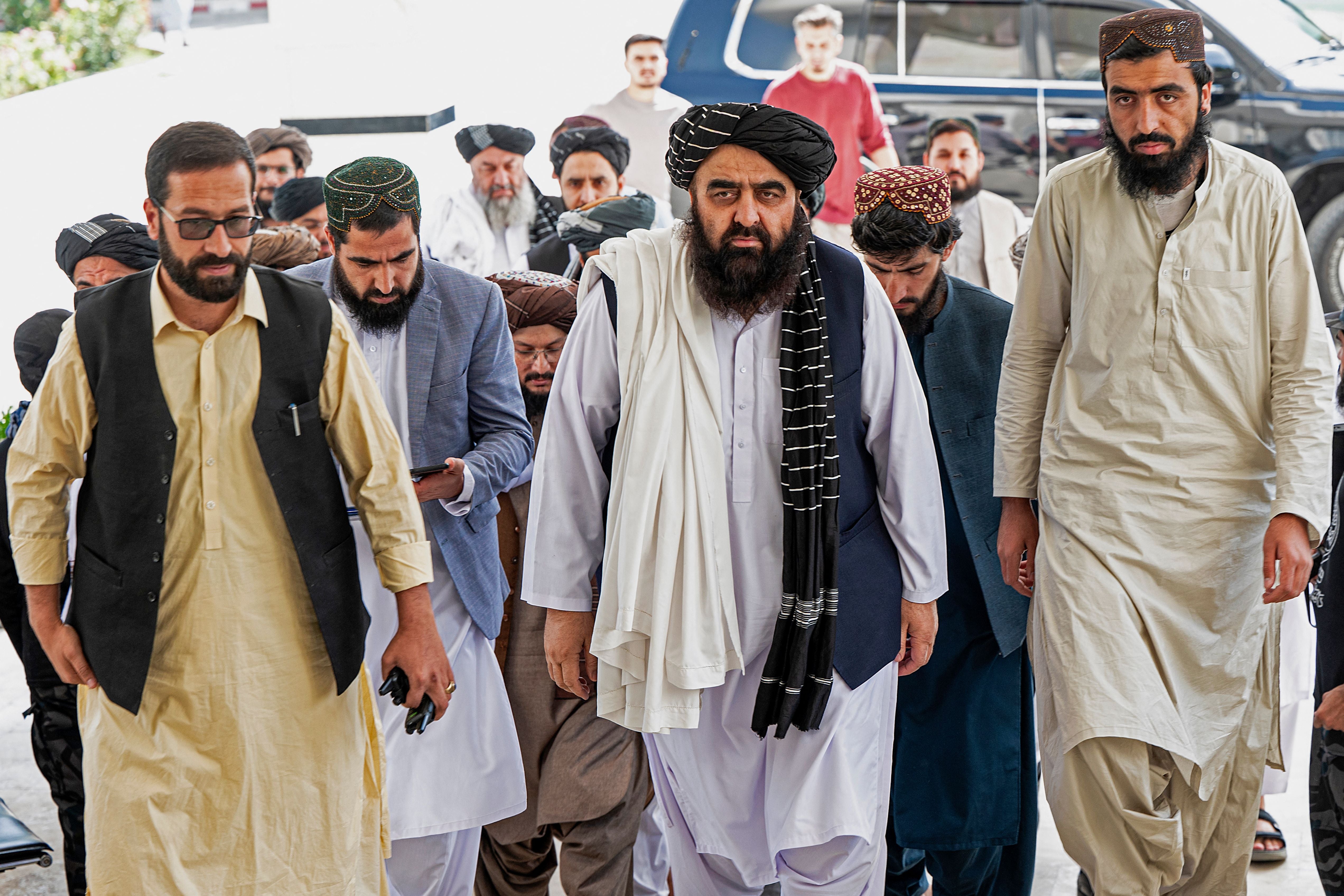Taliban draw closer to China and say they will protect Chinese citizens in Afghanistan as ‘our own’
Experts say China’s growing closeness to the Taliban is worrying as the Islamist militant group pushes for greater legitimacy

Your support helps us to tell the story
From reproductive rights to climate change to Big Tech, The Independent is on the ground when the story is developing. Whether it's investigating the financials of Elon Musk's pro-Trump PAC or producing our latest documentary, 'The A Word', which shines a light on the American women fighting for reproductive rights, we know how important it is to parse out the facts from the messaging.
At such a critical moment in US history, we need reporters on the ground. Your donation allows us to keep sending journalists to speak to both sides of the story.
The Independent is trusted by Americans across the entire political spectrum. And unlike many other quality news outlets, we choose not to lock Americans out of our reporting and analysis with paywalls. We believe quality journalism should be available to everyone, paid for by those who can afford it.
Your support makes all the difference.The Taliban have strongly vowed to protect citizens from China against terrorist threats on their soil, the latest sign of a growing closeness between the two countries that has alarmed international observers.
China was the first major world power to restore its embassy in Kabul after the Islamist group’s 2021 takeover of Afghanistan, and has been ramping up its trade and infrastructure links with the Taliban regime.
After several attacks in recent months targeting Chinese workers in Afghanistan, the Taliban’s de facto foreign minister, Amir Khan Muttaqi, said the Islamist group will not tolerate such activities.
“We have done a lot of work to combat terrorism and we take security threats against China like a challenge to our own,” the minister told the Chinese foreign minister Wang Yi during talks in the Tibetan city of Nyingchi on Thursday.
“We will not allow any activities that would harm [the] security and stability of China to happen in Afghanistan.”
Mr Muttaqi also offered an “effective guarantee” on the safety of Chinese nationals in Afghanistan but did not share more details.
The meeting in Tibet, seen as the latest in a campaign of diplomatic engagement by the Taliban, is the first where such language against “terrorism” has been used in records of meetings with Chinese officials.
The Chinese record from Thursday expressed hope that Afghanistan will continue to fight terrorism and “completely eliminate the terrorist forces of the East Turkestan Islamic Movement” on its soil.
President Xi Jinping’s top envoy, Mr Wang, said China would like to “continue to help Afghanistan develop its relations with its neighbours and better integrate with regional economic cooperation”.
Last month, Beijing became one of the first major nations to officially send an ambassador to present his credentials to the Taliban leaders in Kabul. He was received with a level of pomp and ceremony that is rarely accorded to any other official or envoy.
Experts fear that if Afghanistan has China as a “big brother ally’’ it will weaken Western diplomatic pressures to try to force the Taliban to address problematic domestic policies concerning the rights of girls, women and religious minorities. The Taliban banned girls from receiving secondary and higher education shortly after taking power, and women have largely been expelled from workplaces.
But China appears increasingly willing to take an alternative position to the West on international affairs, with its relations with the Taliban just the latest example of this, according to Harsh V Pant, professor of international relations with the King’s India Institute at King’s College, London.
“They will give more space to the Taliban, some space for them to manoeuvre. For a large part of the international community, the Taliban’s domestic behaviour is a problem. But for China, that’s not really the concern here,” he told The Independent.
Mr Pant said China’s actions could have a cascading effect with other allies such as Russia following its example. If this were to happen, it would afford the Taliban more legitimacy than they ever enjoyed during their previous spell in power in Afghanistan in the late 1990s.
“It is worrying that China is active and open with its engagement and it will further embolden the Taliban. And that will of course have deleterious effects on the rights and welfare of ordinary Afghans, and certainly the issues of minority rights.
“Even when things have not been very good for the Taliban on the global stage, they have not really budged on domestic reforms. We’ve not seen any positive movements on minority, women and human rights. It becomes even harder, and especially for the West, it will be very difficult to make this case of the world being united in not recognising the Taliban,” he said.
No country, China included, has formally recognised the Taliban as the legitimate rulers of Afghanistan. The United Nations says that recognition is “nearly impossible” while the severe Taliban restrictions on women and girls’ rights are in place.





Join our commenting forum
Join thought-provoking conversations, follow other Independent readers and see their replies
Comments